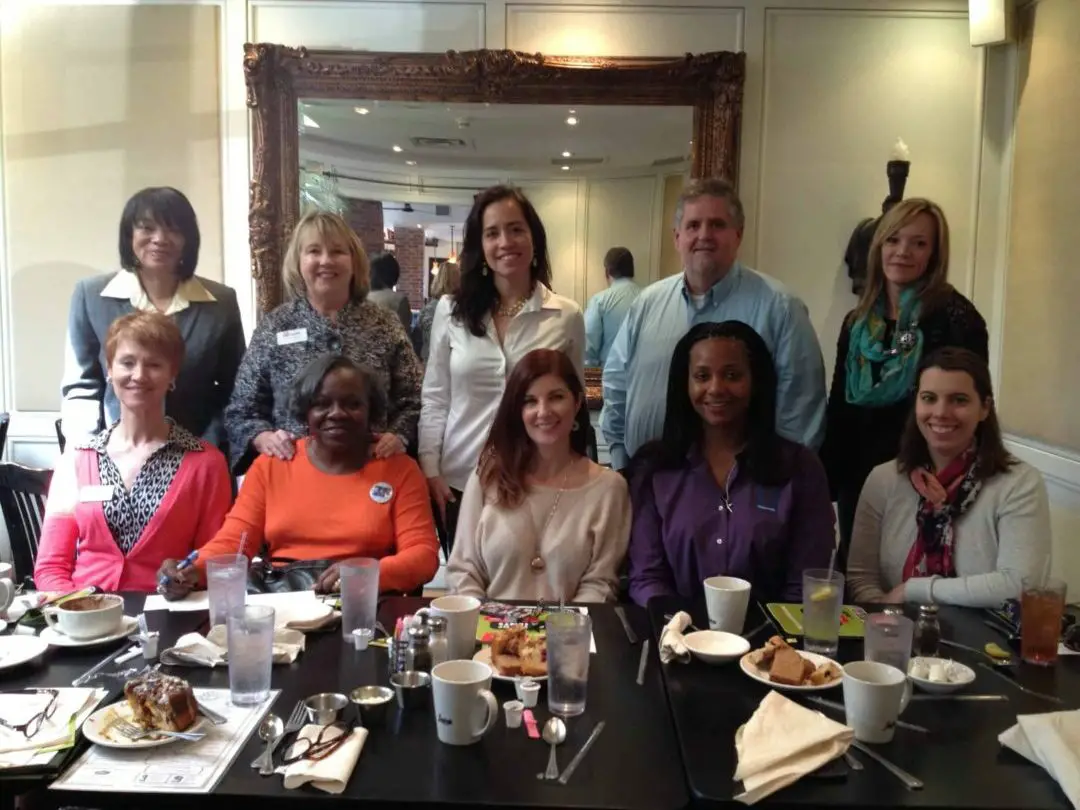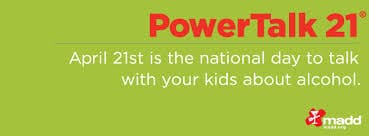As I get older, and as I become hyper aware that the Princess Cupcake is watching and learning about everything that comes out of and into my mouth. And that includes how much sugar I eat, what I say to other drivers on the road, and the hubs and I enjoying an adult beverage. We weren’t products of the 50’s, but I can’t deny that the evening beer or glass of wine with dinner isn’t a foreign concept at our house. (I didn’t say we get rocked, I said we enjoy A drink together.) Little eyes see this and will on occasion ask for her milk in a wine glass.
I know, I heard you gasp. Aside from the perils of giving a 6 year old stemmed crystal, the behaviors she’s emulating need to be addressed.
So I’ve started talking with her about it. Not a lot, no need to totally obsess about it at 6, but enough to lay the groundwork and build on it for the future.
When I was invited to a MADD sponsored breakfast, I thought perhaps I should go and see if my message was age appropriate and what to expect as she gets older.
There were several bloggers there with local MADD representatives, and a brave mother who had lost her son to a drunk driver. Hearing her story about how her son had passed not because he was drinking and driving, but because he made the decision to ride with someone who had been, was heartbreaking and impactful to say the least.

I was shocked to learn from others that kids are beginning to drink at a very early age. Like middle school. And that scares the crap out of me as middle school will be here in the blink of an eye.
There was some good news. In a recent study, 62 percent of Texas teens say their parents are the motivating factor for them not to drink. Furthermore, studies show that the clearer the message from parents, the less likely a teen will drink. More importantly, parents remain the single biggest influence on their teen’s decision to not drink.
Let’s face it. We can talk with our kids and do our best to make sure they make good choices, and hopefully not drink. But chances are they still might. Since I have a 6 year old, the conversations I have with her will be a little different. They may not be focused on drinking all that frequently yet, but her understanding how to resist peer pressure and not succumb to bullies is essential. Those traits will lay the groundwork to help her to do the right thing as she gets older.
If you have an older child, you have a lot more to talk about. A recent MADD/Nationwide Insurance study has shown that teens are 80 percent less likely to drink if parents deliver a clear no alcohol before 21 message. Parents have the biggest influence on their teen not to drink, even more so than their friends.
Even if you and your child are on the same page about drinking, there may be a time or situation where they are forced to make a choice about riding with someone who is under the influence. Unlike when I was growing up, services like Uber are available as an easy alternative for adults (and kids) who may drink and be tempted to drive. But a service being available isn’t enough. The conversation needs to start now about making smart decisions. We all know alcohol and other drugs impair decision making, yet if you talk with your kids – and your friends kids, and your nieces and nephews — about the effects of these dangerous drugs starting at a young age and make them a promise that if they are in a situation where others are impaired or they are impaired, they call you for a ride, no questions asked. You just might have a fighting chance. The groundwork for trust has to be established early on – and you have to mean it.
To highlight the impact parents can have on their teens, MADD is hosting a variety of awareness activities leading up to their fourth annual PowerTalk 21® day on April 21. This is a national day for parents to talk with their children about alcohol. It was launched in 2011 to get the conversation started between parents and teens, using the Power of Parents™ handbook as their guide.
The goal is to bring more attention to the need for parents to start talking with their children about alcohol and the consequences of underage drinking now. In an effort to underscore the importance of parents, MADD is hosting community engagement events across the state and nationally to encourage parents to take part in PowerTalk 21 and to commit to talking with their teens about alcohol and not drinking until they are 21. If you would like information about PowerTalk 21 which includes a helpful handbook, you can receive a free 30 minute session by visiting MADD.org. If you still have a bitty like me, it’s not too early. Have a conversation with them about making smart decisions and why it’s bad to drink and drive.
Mothers Against Drunk Driving®
Founded by a mother whose daughter was killed by a drunk driver, Mothers Against Drunk Driving® (MADD) is the nation’s largest nonprofit working to protect families from drunk driving and underage drinking. MADD also supports drunk and drugged driving victims and survivors at no charge, serving one person every eight minutes through local MADD victim advocates and at 1-877-MADD-HELP. Learn more at www.madd.org or by calling 1-877-ASK-MADD.





Great content and tips that every parents can follow through on guiding their kids on responsible drinking.